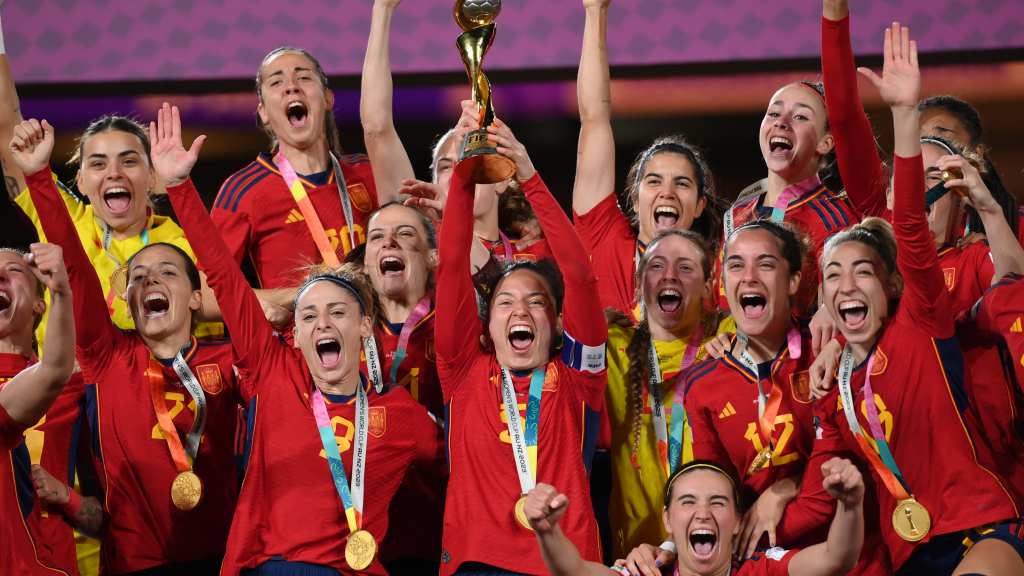Just days after female football players in the country initiated a protest against alleged misconduct involving Spanish midfielder Jenni Hermoso by federation chief Luis Rubiales, Prime Minister Pedro Sanchez commended the women’s collective strike on Saturday, describing it as a global lesson in equality.
Sanchez stated, “Our players have achieved victory twice: first on the field and now by teaching the world a lesson in gender equality.”
Jenni Hermoso, who was at the center of the controversy, also took part in the women players’ mass strike last week. She publicly stated that she did not consent to the kiss from suspended Luis Rubiales, which occurred after Spain’s Women’s World Cup final victory.
Speaking in Malaga, Prime Minister Sanchez praised the players for their stance.
Last week, in a statement issued by the women players’ union, Futpro, Hermoso and 80 other players declared that they would decline international call-ups “if the current leadership continues” at the Spanish Football Federation (RFEF).
Despite widespread calls for his resignation, the 46-year-old Rubiales has refused to step down.
Prime Minister Sanchez emphasized that Spain was a country committed to feminism, with women who had chosen “not to submit anymore.” He referenced the slogan chanted during demonstrations in support of Hermoso, declaring, “It’s over.”
On Friday, Spain’s sports court agreed to investigate Rubiales for the alleged forced kiss. The embattled football chief has maintained that he will defend himself to “prove the truth.”
The government filed a complaint against Rubiales through the state-run National Sports Council (CSD) a week ago, accusing him of “very serious” offenses.
While the Administrative Tribunal for Sport (TAD) agreed to take up the case, it characterized the behavior in question as “serious,” stopping short of the government’s characterization of Rubiales’ actions.
FIFA has suspended Rubiales for 90 days while it considers disciplinary measures.
Veronica Boquete, a former national team captain, expressed her views on the matter, calling the scandal “the straw that broke the camel’s back.” She highlighted the need to address issues that often go unaddressed in football when there are no cameras or high-profile events, emphasizing the importance of challenging norms and fostering an environment where complaints are heard and acted upon.
Boquete also criticized the management of coach Jorge Vilda and the challenges faced by players who sought to voice concerns and drive improvements within the national team. She called for greater representation of women in leadership roles in football and an end to the prevailing macho mentality.
The ongoing developments underscore the importance of addressing issues of gender equality and ensuring a supportive environment for female athletes in the world of football.




